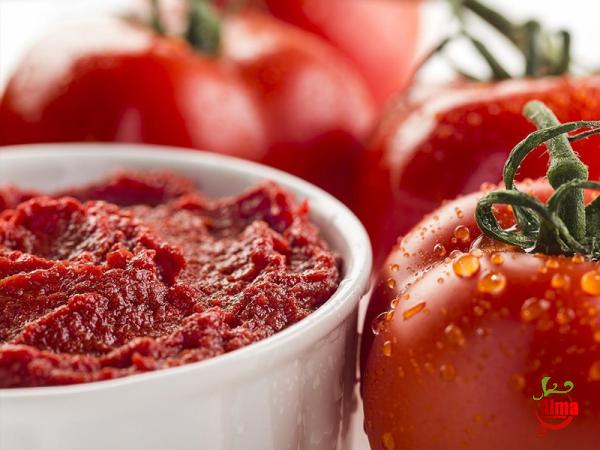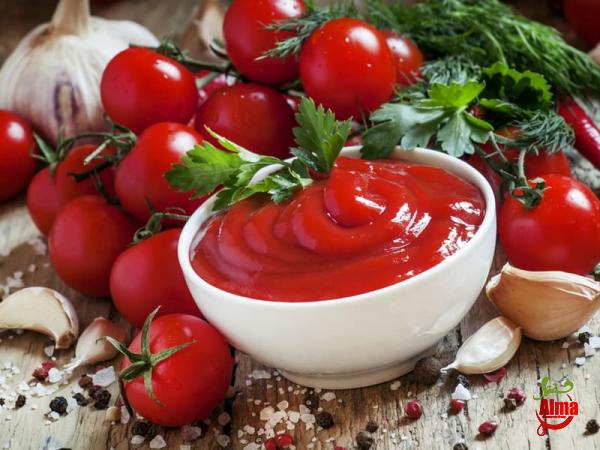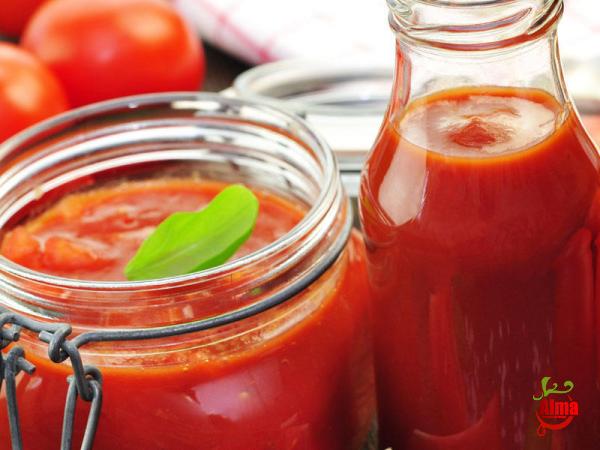Canned Tomatoes Without Seeds: A Convenient and Versatile Option Introduction: Canned tomatoes are a staple ingredient in many households, valued for their convenience, versatility, and ability to enhance the flavor of various dishes. While most canned tomatoes contain seeds, there is an increasing demand for seedless options. This article aims to explore the benefits of canned tomatoes without seeds, including their culinary applications, nutrition profile, and tips for incorporating them into your recipes. 1. What are Canned Tomatoes Without Seeds? Canned tomatoes without seeds are a processed form of fresh, ripe tomatoes that have been meticulously processed to remove the seeds. The absence of seeds not only provides convenience in the cooking process but also eliminates the sometimes undesirable texture and visual presence of seeds in dishes. 2. The Culinary Applications of Seedless Canned Tomatoes: – Versatility: Seedless canned tomatoes can be used as a base for a wide range of dishes, such as pasta sauces, soups, stews, risotto, salsa, and even tomato juice. – Smooth Texture: The removal of seeds results in a smoother and more uniform texture, allowing for a consistent taste in dishes. This makes them particularly desirable when preparing sauces where a velvety texture is desired. – Enhanced Presentation: Dishes prepared with seedless canned tomatoes often have a more appealing visual appeal as the absence of seeds provides a clean and refined presentation. 3. Nutritional Profile of Seedless Canned Tomatoes: – Antioxidants: Tomatoes contain a variety of powerful antioxidants, such as lycopene, vitamin C, and beta-carotene. These compounds have been linked to numerous health benefits, including reduced risk of chronic diseases and improved heart health. – Nutrient Preservation: The canning process used to produce seedless canned tomatoes retains many of the essential nutrients found in fresh tomatoes, making them a convenient and readily available source of vitamins and minerals year-round.

tomato paste
 Low in Calories and Fat: Seedless canned tomatoes are naturally low in calories and fat, making them suitable for individuals following a calorie-conscious or weight management diet. 4. Tips for Incorporating Seedless Canned Tomatoes into Recipes: – Flavor Enhancers: Add herbs and spices, such as basil, oregano, garlic, and onions, to complement and enhance the natural flavors of canned tomatoes without seeds. – Sauce Base: Use seedless canned tomatoes as a base for various pasta sauces, including marinara, Bolognese, and arrabbiata. The smooth texture contributes to a rich and velvety sauce. – Soup and Stews: Incorporate seedless canned tomatoes into soups and stews for a vibrant and tangy taste. They work exceptionally well in classics like minestrone, tomato soup, and chili. – Salsa and Dips: Combine seedless canned tomatoes with onions, jalapeños, cilantro, and lime juice to create fresh and flavorful salsas and dips. – Comfort Foods: Use seedless canned tomatoes to prepare comfort foods such as lasagna, casseroles, and baked pasta dishes for an appetizing and fulfilling meal. 5. Shelf Life and Storage: – Longer Shelf Life: The canning process extends the shelf life of seedless canned tomatoes, ensuring that they remain fresh and safe for consumption for an extended period. However, always check the expiration date for optimal quality and taste. – Storage Guidelines: Store unopened cans in a cool, dry place away from direct sunlight. Once opened, transfer unused portions into a non-reactive container and refrigerate for up to 5-7 days.
Low in Calories and Fat: Seedless canned tomatoes are naturally low in calories and fat, making them suitable for individuals following a calorie-conscious or weight management diet. 4. Tips for Incorporating Seedless Canned Tomatoes into Recipes: – Flavor Enhancers: Add herbs and spices, such as basil, oregano, garlic, and onions, to complement and enhance the natural flavors of canned tomatoes without seeds. – Sauce Base: Use seedless canned tomatoes as a base for various pasta sauces, including marinara, Bolognese, and arrabbiata. The smooth texture contributes to a rich and velvety sauce. – Soup and Stews: Incorporate seedless canned tomatoes into soups and stews for a vibrant and tangy taste. They work exceptionally well in classics like minestrone, tomato soup, and chili. – Salsa and Dips: Combine seedless canned tomatoes with onions, jalapeños, cilantro, and lime juice to create fresh and flavorful salsas and dips. – Comfort Foods: Use seedless canned tomatoes to prepare comfort foods such as lasagna, casseroles, and baked pasta dishes for an appetizing and fulfilling meal. 5. Shelf Life and Storage: – Longer Shelf Life: The canning process extends the shelf life of seedless canned tomatoes, ensuring that they remain fresh and safe for consumption for an extended period. However, always check the expiration date for optimal quality and taste. – Storage Guidelines: Store unopened cans in a cool, dry place away from direct sunlight. Once opened, transfer unused portions into a non-reactive container and refrigerate for up to 5-7 days.
Specifications of tomato paste
 6. Brand Recommendations: – Cento San Marzano Peeled Tomatoes: These Italian tomatoes are famous for their sweet flavor and low acidity. The seedless variety ensures a smooth and velvety texture, perfect for pasta sauces. – Muir Glen Organic Diced Tomatoes: Muir Glen offers a wide range of canned tomatoes, including a seedless diced version. These tomatoes are organically grown, ensuring high-quality ingredients in your recipes. Conclusion: Canned tomatoes without seeds provide a convenient and versatile option for culinary enthusiasts and home cooks alike. Their smooth texture, enhanced visual appeal, and suitability in various dishes make them an essential ingredient in the kitchen. Moreover, the nutrient profile of seedless canned tomatoes ensures that they retain the health benefits associated with fresh tomatoes. Incorporate these versatile ingredients into your favorite recipes to elevate their flavor and bring out the best in your culinary creations.Business Heading: Growing Consumer Demand for Seedless Canned Tomatoes The demand for seedless canned tomatoes is on the rise, driven by various factors such as consumer preferences, convenience, and the increasing popularity of recipes that require smooth-textured tomato sauces. As a result, businesses in the food industry are starting to take notice of this emerging trend and adapting their product offerings to cater to the needs of consumers. In this section, we will explore the growing consumer demand for seedless canned tomatoes and the implications for businesses in this market. 1. Researching Consumer Preferences: To capitalize on the growing demand for seedless canned tomatoes, businesses need to understand the preferences and needs of their target audience. Conducting market research and gathering consumer insights can provide valuable information on what drives the demand for seedless canned tomatoes, the specific applications consumers are using them for, and their expectations in terms of taste, texture, and packaging. This valuable data can help businesses develop and market their products more effectively. 2. Expanding Product Lines: Food businesses that produce canned tomatoes can tap into the increasing demand for seedless varieties by expanding their product lines to include seedless options. By offering both seeded and seedless versions, companies can cater to a broader customer base and provide options that meet different preferences and recipe requirements. This strategy can help businesses capture a larger market share and stay ahead of the competition.
6. Brand Recommendations: – Cento San Marzano Peeled Tomatoes: These Italian tomatoes are famous for their sweet flavor and low acidity. The seedless variety ensures a smooth and velvety texture, perfect for pasta sauces. – Muir Glen Organic Diced Tomatoes: Muir Glen offers a wide range of canned tomatoes, including a seedless diced version. These tomatoes are organically grown, ensuring high-quality ingredients in your recipes. Conclusion: Canned tomatoes without seeds provide a convenient and versatile option for culinary enthusiasts and home cooks alike. Their smooth texture, enhanced visual appeal, and suitability in various dishes make them an essential ingredient in the kitchen. Moreover, the nutrient profile of seedless canned tomatoes ensures that they retain the health benefits associated with fresh tomatoes. Incorporate these versatile ingredients into your favorite recipes to elevate their flavor and bring out the best in your culinary creations.Business Heading: Growing Consumer Demand for Seedless Canned Tomatoes The demand for seedless canned tomatoes is on the rise, driven by various factors such as consumer preferences, convenience, and the increasing popularity of recipes that require smooth-textured tomato sauces. As a result, businesses in the food industry are starting to take notice of this emerging trend and adapting their product offerings to cater to the needs of consumers. In this section, we will explore the growing consumer demand for seedless canned tomatoes and the implications for businesses in this market. 1. Researching Consumer Preferences: To capitalize on the growing demand for seedless canned tomatoes, businesses need to understand the preferences and needs of their target audience. Conducting market research and gathering consumer insights can provide valuable information on what drives the demand for seedless canned tomatoes, the specific applications consumers are using them for, and their expectations in terms of taste, texture, and packaging. This valuable data can help businesses develop and market their products more effectively. 2. Expanding Product Lines: Food businesses that produce canned tomatoes can tap into the increasing demand for seedless varieties by expanding their product lines to include seedless options. By offering both seeded and seedless versions, companies can cater to a broader customer base and provide options that meet different preferences and recipe requirements. This strategy can help businesses capture a larger market share and stay ahead of the competition.
buy tomato paste
 3. Collaborating with Tomato Suppliers: Collaboration with tomato suppliers can be crucial for businesses looking to incorporate seedless canned tomatoes into their product lines. Companies should work closely with suppliers to ensure a consistent supply of high-quality seedless tomatoes that meet the specific requirements of the canning process. Developing strong relationships with tomato growers and processors can help businesses secure a reliable source of seedless tomatoes and maintain a competitive advantage. 4. Investing in Processing Technology: The production of seedless canned tomatoes requires specific processing techniques to remove the seeds while preserving the flavor and texture of the tomatoes. Businesses seeking to enter or expand in the market for seedless canned tomatoes should consider investing in processing technology that enables efficient and effective removal of seeds. Upgrading machinery and equipment can enhance productivity, reduce production costs, and ensure consistent quality across product batches. 5. Branding and Differentiation: As the demand for seedless canned tomatoes continues to grow, businesses need to establish strong brand identities and differentiate themselves from competitors. This could involve developing a unique selling proposition, highlighting the benefits of their seedless tomatoes, and creating branding strategies that resonate with consumers. Companies should consider investing in marketing efforts to raise awareness and build brand loyalty among target customers. 6. Addressing Sustainability Concerns: As consumers become increasingly conscious of sustainability and environmental issues, businesses in the food industry should address these concerns to maintain customer loyalty. Emphasizing sustainable sourcing practices, eco-friendly packaging options, and responsible manufacturing processes can enhance the reputation of companies producing seedless canned tomatoes. Communicating these efforts through marketing campaigns can help businesses attract environmentally conscious customers and gain a competitive edge in the market. 7. Responding to Pricing Dynamics: The pricing of seedless canned tomatoes should be carefully considered by businesses, taking into account factors such as production costs, market demand, and competitor pricing. Offering competitive prices can help companies attract price-sensitive consumers who are looking for value-for-money products. Additionally, implementing pricing strategies such as promotional offers and bulk discounts can further incentivize customers to choose seedless canned tomatoes over competing products. 8. Exploring New Distribution Channels: To meet the growing consumer demand for seedless canned tomatoes, businesses should consider exploring new distribution channels beyond traditional retail outlets. Online platforms, food delivery services, and specialty stores can provide additional avenues for reaching customers who specifically seek out seedless tomato products. Developing partnerships with online retailers or local distributors can increase product visibility and accessibility, expanding the customer base and revenue potential. 9. Monitoring and Leveraging Consumer Feedback: Continuous monitoring of consumer feedback is essential for businesses aiming to serve their customers better and stay ahead of market trends. Actively seeking out feedback through surveys, social media listening, and customer reviews can provide valuable insights into consumer satisfaction, identify potential areas for improvement, and help businesses refine their seedless canned tomato offerings. Responding to feedback transparently and making necessary adjustments can enhance customer loyalty and contribute to long-term business success. 10. Embracing Innovation: Innovation plays a key role in meeting consumer demands and staying competitive in the market for seedless canned tomatoes. Businesses should actively explore new packaging options, such as sustainable materials or portion-sized packages, to cater to changing consumer preferences and enhance convenience. Additionally, investing in research and development can help companies innovate in terms of flavor profiles, texture, and nutritional enhancements, providing unique selling points and attracting discerning customers. Conclusion: The increasing consumer demand for seedless canned tomatoes presents significant opportunities for businesses in the food industry. By understanding consumer preferences, expanding product lines, collaborating with suppliers, investing in processing technology, and adopting sustainable practices, companies can position themselves as leaders in this growing market. Emphasizing brand differentiation, addressing sustainability concerns, and exploring new distribution channels are crucial strategies for capturing market share and establishing a strong presence. By staying attuned to consumer feedback and embracing innovation, businesses can adapt to evolving trends and maintain a competitive edge in the fast-growing market for seedless canned tomatoes.
3. Collaborating with Tomato Suppliers: Collaboration with tomato suppliers can be crucial for businesses looking to incorporate seedless canned tomatoes into their product lines. Companies should work closely with suppliers to ensure a consistent supply of high-quality seedless tomatoes that meet the specific requirements of the canning process. Developing strong relationships with tomato growers and processors can help businesses secure a reliable source of seedless tomatoes and maintain a competitive advantage. 4. Investing in Processing Technology: The production of seedless canned tomatoes requires specific processing techniques to remove the seeds while preserving the flavor and texture of the tomatoes. Businesses seeking to enter or expand in the market for seedless canned tomatoes should consider investing in processing technology that enables efficient and effective removal of seeds. Upgrading machinery and equipment can enhance productivity, reduce production costs, and ensure consistent quality across product batches. 5. Branding and Differentiation: As the demand for seedless canned tomatoes continues to grow, businesses need to establish strong brand identities and differentiate themselves from competitors. This could involve developing a unique selling proposition, highlighting the benefits of their seedless tomatoes, and creating branding strategies that resonate with consumers. Companies should consider investing in marketing efforts to raise awareness and build brand loyalty among target customers. 6. Addressing Sustainability Concerns: As consumers become increasingly conscious of sustainability and environmental issues, businesses in the food industry should address these concerns to maintain customer loyalty. Emphasizing sustainable sourcing practices, eco-friendly packaging options, and responsible manufacturing processes can enhance the reputation of companies producing seedless canned tomatoes. Communicating these efforts through marketing campaigns can help businesses attract environmentally conscious customers and gain a competitive edge in the market. 7. Responding to Pricing Dynamics: The pricing of seedless canned tomatoes should be carefully considered by businesses, taking into account factors such as production costs, market demand, and competitor pricing. Offering competitive prices can help companies attract price-sensitive consumers who are looking for value-for-money products. Additionally, implementing pricing strategies such as promotional offers and bulk discounts can further incentivize customers to choose seedless canned tomatoes over competing products. 8. Exploring New Distribution Channels: To meet the growing consumer demand for seedless canned tomatoes, businesses should consider exploring new distribution channels beyond traditional retail outlets. Online platforms, food delivery services, and specialty stores can provide additional avenues for reaching customers who specifically seek out seedless tomato products. Developing partnerships with online retailers or local distributors can increase product visibility and accessibility, expanding the customer base and revenue potential. 9. Monitoring and Leveraging Consumer Feedback: Continuous monitoring of consumer feedback is essential for businesses aiming to serve their customers better and stay ahead of market trends. Actively seeking out feedback through surveys, social media listening, and customer reviews can provide valuable insights into consumer satisfaction, identify potential areas for improvement, and help businesses refine their seedless canned tomato offerings. Responding to feedback transparently and making necessary adjustments can enhance customer loyalty and contribute to long-term business success. 10. Embracing Innovation: Innovation plays a key role in meeting consumer demands and staying competitive in the market for seedless canned tomatoes. Businesses should actively explore new packaging options, such as sustainable materials or portion-sized packages, to cater to changing consumer preferences and enhance convenience. Additionally, investing in research and development can help companies innovate in terms of flavor profiles, texture, and nutritional enhancements, providing unique selling points and attracting discerning customers. Conclusion: The increasing consumer demand for seedless canned tomatoes presents significant opportunities for businesses in the food industry. By understanding consumer preferences, expanding product lines, collaborating with suppliers, investing in processing technology, and adopting sustainable practices, companies can position themselves as leaders in this growing market. Emphasizing brand differentiation, addressing sustainability concerns, and exploring new distribution channels are crucial strategies for capturing market share and establishing a strong presence. By staying attuned to consumer feedback and embracing innovation, businesses can adapt to evolving trends and maintain a competitive edge in the fast-growing market for seedless canned tomatoes.









Your comment submitted.